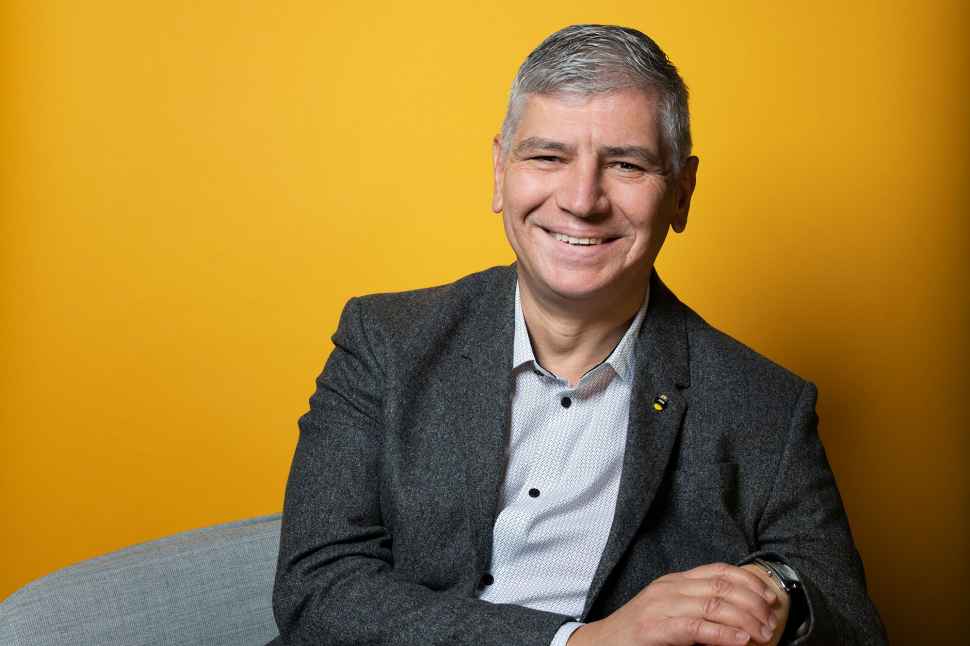The panic buying of non-perishable items in supermarkets and the extraordinary toilet paper crisis were early signs of unease. But prolonged states of quarantine, lockdown and social distancing have impacted people’s lives in so many ways that cause anxiety and depression—loneliness, financial uncertainty and hardship, guilt at being separated from elderly relatives, missed special occasions and rites of passage, such as graduations, birthdays, weddings and funerals.
This in turn has led to a dramatic rise in negative coping strategies—domestic violence, alcohol and drug abuse and other addictive behaviours, cyberbullying, and self-harm. These factors alone have increased by as much as 25-50% over the past several months.
Nationally, amongst our student populations, we already had high rates of depression and anxiety, frequently fuelled by fear of failure, the financial urgency of juggling study with paid work (which impacts both academic success and important extra-curricular activities), growing student debt, social isolation, and uncertainty about the future.
In a study conducted last year with students in Flinders University’s College of Education, Psychology and Social Work, 40% of students were in the lowest category for resilience, 32% experiencing anxiety, and 24% experiencing depression.
"This is really worrying; it's twice what you would expect in a community,” says Professor Mike Kyrios, Vice-President and Executive Dean of the College, who currently chairs the University’s Student Wellbeing Working Group.
“And with COVID-19, many of these factors have been amplified.”
A significant proportion of students lost the part-time and casual work that was sustaining them financially through their studies; and the additional pressures of the rapid transition to online and remote learning significantly compounded their social isolation—at a time when they most urgently needed their support networks.
“Add the fear of extending or not completing their education, and you have a lethal mix impacting student wellbeing,” Professor Kyrios says.
While COVID-19 restrictions are now lifting in South Australia and around the country, the psychological impact for both current students and the general populace will be ongoing.
“This is just the tip of the iceberg,” Professor Kyrios says.
“The world has changed, and there will be a new ‘normal’. Social distancing may be maintained indefinitely, which will continue to impact the ways we socialise, shop, educate, exercise, entertain ourselves, and so on. We will also experience adjustments in our working lives, with many jobs either no longer there, or significant changes to workplace practices.
“With such personal, family, social and work upheavals, we need to consider ways to tackle the inevitable mental health and wellbeing implications, so as to emerge from this pandemic ready to flourish. Our attitudes and coping strategies in response to the new world will determine how successfully we adjust.”
Research into the impacts of the 2009 Black Saturday bushfires and the 2011 Christchurch earthquake demonstrated that community trauma does not end with the catastrophe—it can last for up to five or more years afterwards.
Working collaboratively with the SAHMRI (South Australian Health and Medical Research Institute) Wellbeing and Resilience Centre, Professor Kyrios and the psychology team in Flinders’ Órama Institute for Mental Health and Wellbeing were already engaged in the development of a comprehensive digital student wellbeing program. When COVID-19 hit Australia, their attention immediately turned to how they could more broadly contribute to the country’s mental health and wellbeing, both in and out of social isolation.
“Having worked in the hospital environment, we know that six weeks in a hospital bed is the time people start to get very serious mental health problems. So, with the potential for six months of quarantine, we said, let’s think about what we can do to prevent the mental health consequences of people being at home.”
Out of this was born STREAM, six simple strategies for self-care that deliver powerful results, represented by: Social networking, Time out, Relaxation, Exercise and entertainment, Alternative thinking, and Mindfulness of others.
More recently, a follow-up program was launched to prepare for the return to the ‘new normal’, with the APPEAL & CARE Framework—two more simple mnemonics helping individuals to de-escalate feelings of panic and to focus instead on practical steps for managing their outside world. These strategies comprise: Accept; Prioritise; Plan; Emotions; Alternative; Learn; and Commit; Action; Reward; and Evolve.
These two systems are further supported by a digital platform called the ‘Be Well Plan’, which enables users to create their own personalised wellbeing program of exercises, based on a preliminary self-directed measurement of their current state of mind. Individuals can choose to access free pre-recorded sessions at any time or participate in pay-as-you-want interactive sessions with an online facilitator.
“We wanted to keep the concepts of STREAM, APPEAL and CARE as simple as possible, but these are based on a robust methodology and interventions that we began developing with our students, who are an extremely diverse population—at least 40 per cent are mature aged students, and many of them are parents of young children, single parents and carers. So, a lot of the issues, challenges and strategies we came up with are relevant across the whole population, including elderly people.
“Having effective tools to cope psychologically with both isolation and post-isolation is essential. Negative adjustment will only stifle our creativity in solving the challenges that lie ahead.
“However, if we emerge as strong and resilient individuals, we will be able to help support our communities and rejuvenate our economies to facilitate growth, development, confidence and recovery.”
The College of Education, Psychology and Social Work is also now participating in an international COVID-19 teenage lockdown study, investigating the experience of middle school students aged 11 to 16 during the lockdown, with the aim of informing post-isolation school pastoral care programs.
You can support important programs and studies like the above by giving to the Flinders University Research Fund.
Tax exemption number for charitable donations: 65 542 596 200



